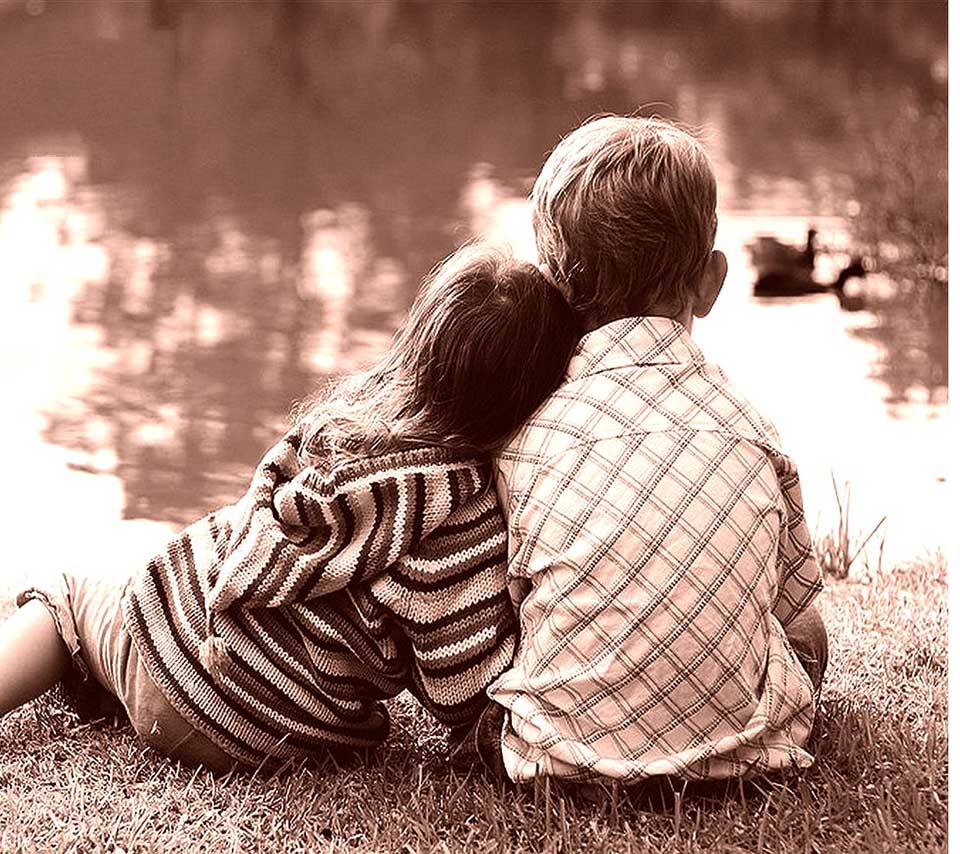
Life presents us with no shortage of opportunities for fear–small things (If I don’t catch that bus I’ll be late for work), typical things (I would be mortified if I asked her out and she said no), and major things (I can’t believe I just lost my job). In general, fear itself isn’t a bad thing. It’s a warning signal from our possibility calculator that an action may have painful consequences. Having said that, we’ve become so comfortable in our modern society that our fear inhibits us from living our fullest lives.
In particular, we tend to let fear prevent us from connecting with each other. Do you remember your first love? I do. She was a beautiful girl of ten. Her dark brown bangs were cut straight across her forehead. I think she often dressed like a boy in slacks with a little polo to match (it was the 80s after all). She had brown eyes to match her brown hair and a perfect button nose. Most importantly, she was just like me. She was smart and shy. She was kind and insecure. She liked me, but at the time I didn’t believe it was true.
For the next several years I did whatever I could to impress her, but I could never bring myself to tell her how much I cared. My heart physically ached for even just a glimpse of her more than it’s ever ached since. Then she moved away. She came back once for one of those awkward jr. high dances. I was pursuing another girl by then, and I was still too shy to talk to her anyway. Toward the end of the dance, though, a mutual friend of ours told me that she wanted to dance with me. I didn’t know what to think as we slowly circled, hands on shoulders and waists, as far away from each other as our arms would allow. I think I was trying to be aloof and cool. When the dance ended, we barely said goodbye. I never saw her again.
I still think about her sometimes. I’ve even tried hunting her down on the Internet. None of that matters now though. Our time together is gone. If only I could be that awkward thirteen-year-old boy again, I would wrap my arms around her and hold her close. I would tell her that I’d loved her since I knew what love feels like. I’d tell her that she was the most beautiful, smartest, kindest person I’d ever known and that there was no one else on the planet who understood my thirteen-year-old me like she did.
The point being, as humans, we face moments like this daily, where if we could just fear a little less, we could live so much more. Once again, I can’t tell you that by accepting your own death, you’ll suddenly lose your inhibitions; I can say however, that it certainly helps. There are numerous reasons for this.
For one, when you’ve accepted that you’re going to die, the simple, daily fears of life recede into the background. They’re just not that scary when compared to your own eventual non-being. Death also sets a backstop. Often when confronted with a scary situation, I ask myself, what’s the worst that could happen? The answer is usually that I could die. Having already accepted this inevitability though, and seeing that the likelihood of my action resulting in death is quite low, it makes me unafraid to move forward.
Additionally, much of the fear we experience when considering interactions with others revolves around protecting ourselves. We’re afraid of what the other person will think of us for exposing how we feel. When we replace our core need for self-preservation with that of our own eventual non-being, we free ourselves from our need to constantly protect that which we’ve already given up. In losing ourselves, we gain the ability to simply speak what we feel from our core.
Finally, as I’ve expressed before, by accepting our own deaths, not just casually, but purposefully and daily, we develop the habit of courage. When we fixate on the negative possibilities of our actions, we fail to consider the absolute assurance that inaction will lead to a life less lived. Thanatism, by forcing us to daily and purposefully look into the void of our own non-existence, helps open up the space to see that all hurt is but temporary, but that a life unlived is irredeemable.
